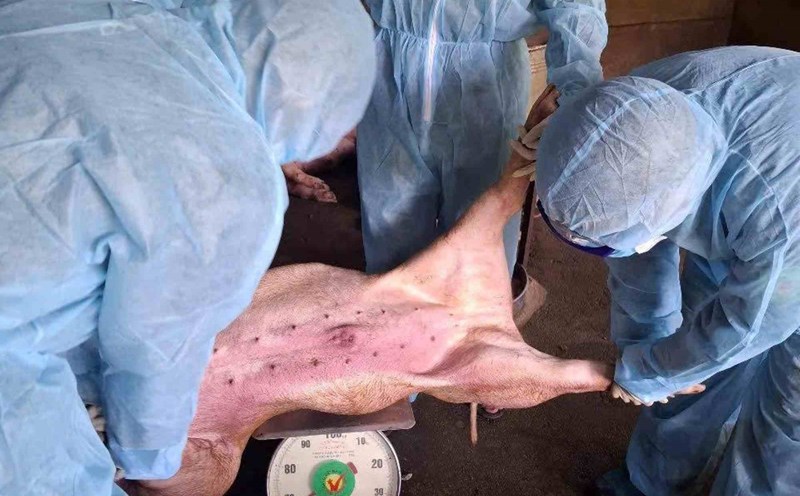African swine fever arose in the city since the beginning of July 2025; has now spread to pigs in 57/9 communes and wards with over 14,300 pigs infected with the disease and must be destroyed.
There are 10 localities that have announced the epidemic, including: Xuan Phu, Phu Thuan, Tra My, Que Son Trung, Son Cam Ha, An Thang, Dien Ban Tay, Phuoc Tra, Tra Doc, Que Phuoc, Tra Tan. Song Kon commune has had an epidemic for 21 days; Tam Ky ward has had 16 days; Hoa Xuan ward has had 12 days; and some communes and wards such as Lien Chieu, Thuong Duc... have had 10 days without any more sick pigs.
According to Mr. Tran Nam Hung - Vice Chairman of Da Nang People's Committee, the city has provided 8,922 liters of chemicals from national reserves and city reserves to localities for detoxification, environmental disinfection to prevent and treat epidemics. At the same time, propagate and instruct livestock farmers to buy more lime powder and chemicals to treat poisoning in the livestock area.
The Department of Animal Husbandry and Veterinary Medicine has assigned staff to stand on duty, closely follow the area to coordinate with localities to guide, urge, inspect, and supervise the implementation of preventive measures; collect samples for testing, coordinate instructions on the destruction of sick and dead pigs according to regulations; guide localities to announce the epidemic and organize disease prevention and control measures for each area that has been announced.
Vice Chairman of the City People's Committee Tran Nam Hung commented that the African swine fever epidemic has a major impact, directly on livestock farmers, affecting the socio-economic development of the locality. Require the agricultural sector to focus all its efforts, resolutely, strongly and effectively implement disease prevention and control, closely follow the grassroots, closely coordinate with communes and wards to promptly detect and conduct "detoxification, disinfection, containment, and suppression of epidemics"; resolutely handle cases of intentional violations.
The city agreed in principle to assign the Department of Agriculture and Environment to preside over the development of a project to supplement the payroll for the Department of Animal Husbandry and Veterinary Medicine, establish regional stations, and arrange payroll for veterinary staff for communes and wards with appropriate quantity and support costs in accordance with actual conditions. While waiting for the project to be issued, the People's Committees of communes and wards must proactively resolve the issue, ensure the veterinary force at the grassroots level, and mobilize all forces to coordinate in supporting epidemics.
Based on the recommendations of localities, the Department of Agriculture and Environment synthesizes and submits a funding plan to support epidemic prevention; the Department of Finance balances the budget, proposes to support livestock farmers who suffered losses due to destruction, and purchases materials and equipment for epidemic prevention.
The city also agreed to propose allowing the Department of Animal Husbandry and Veterinary Medicine to contract human resources to control on-road slaughter and check the hygiene of animal products according to regulations, in order to ensure strict control of slaughter activities, contributing to preventing the spread of the epidemic.
The Vice Chairman of the City People's Committee emphasized that epidemic prevention must be given top priority; the agricultural sector needs to increase propaganda and mobilization of people to raise livestock for biosafety; deploy vaccination on the whole flock; strictly implement distance in livestock farming, ban livestock farming in some areas to effectively prevent epidemics.









